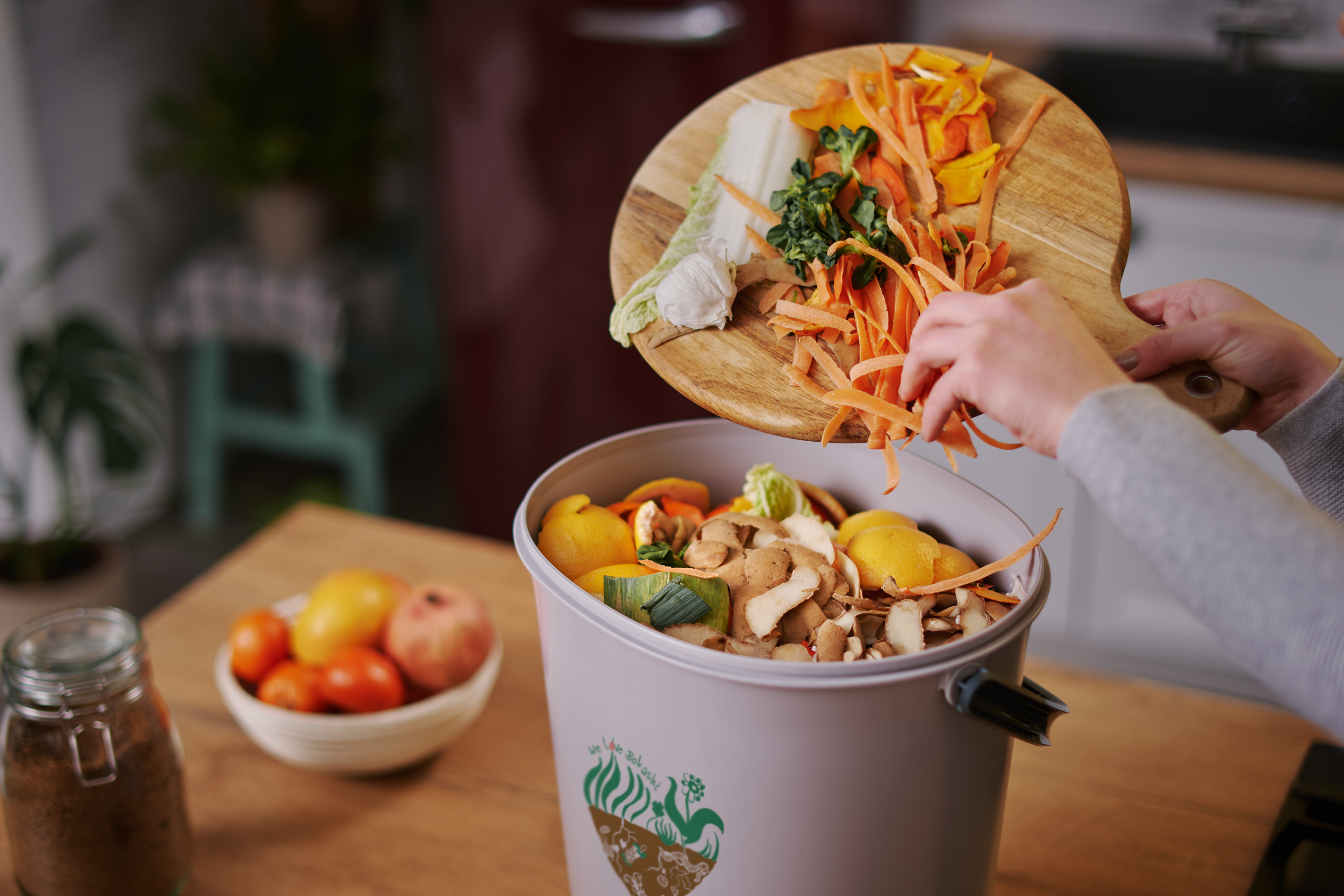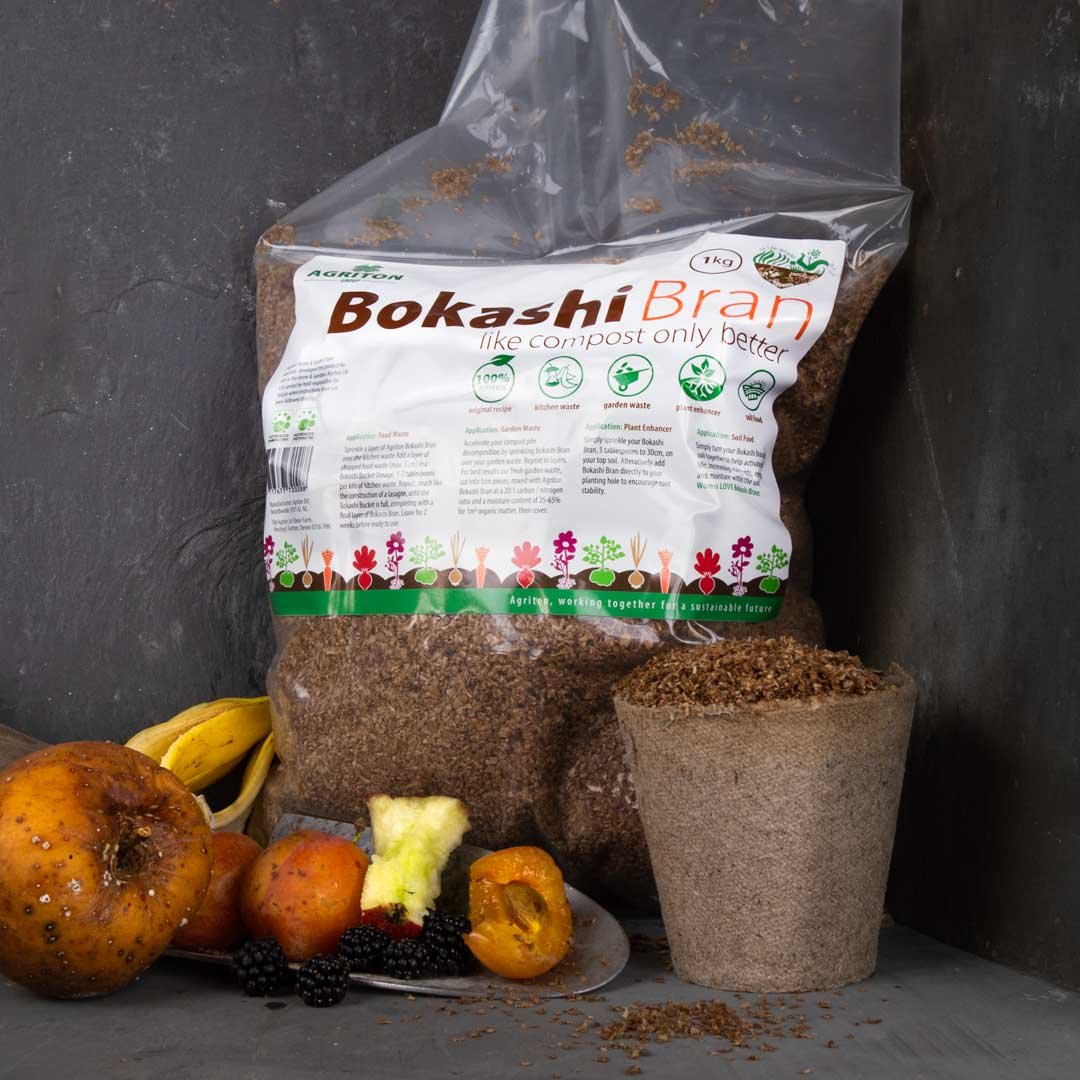
Bokashi Food Waste
RevolutioniSe Waste Management with Bokashi Food Waste Integration
Discover the transformative power of bokashi technology as it paves the way for a sustainable and eco-friendly future. Bokashi, an ancient Japanese practice, takes a modern twist as it champions the utilization of food waste in diverse systems.
Bokashi food waste is like that magical friend you never knew you needed in your life! Imagine turning your kitchen scraps into nutrient-rich compost that enriches your garden and reduces landfill waste. It's not just about being eco-friendly, though that's a huge plus. Bokashi helps you close the sustainability loop, bringing life full circle. It's easy, it's efficient, and it's an incredible way to give back to the planet. So why do you need bokashi food waste in your life? Because it's your secret weapon for creating a greener, healthier world, one banana peel at a time! Join the Bokashi revolution, and you'll wonder how you ever lived without it.
Although the traditional method is to bury this directly into the soil it can also be used to enhance aerobic systems to boost productivity.
Add to your compost pile to accelerate the decomposition process
Make yourself a soil factory to revitalise old potting soil
Or add to other organic materials to increase microbial life
What Do I Need?
-

Bokashi Bran
Elevate your composting game with Bokashi Bran, an essential component in the Bokashi method approved by the original Dr. Higa EM. Crafted from fermented bran infused with beneficial microorganisms, Bokashi Bran accelerates the anaerobic fermentation process, transforming kitchen waste into a nutrient-rich compost. Click 'Buy It Now' to experience the efficiency and versatility of Bokashi composting in your own space!
-

Bokashi Bucket
Integrate the efficient Bokashi composting method into your kitchen routine with a Bokashi bucket. Designed with an airtight lid and drainage system, this specialized container creates the ideal anaerobic environment for the fermentation process. Simply layer your kitchen scraps with Bokashi bran, seal the bucket, and let the beneficial microorganisms work their magic. Click 'Buy It Now' to embark on a space-efficient and versatile composting journey with a Bokashi bucket!
-

Accessories
Enhance your Bokashi composting experience with essential accessories for Bokashi bins. From specialized airtight lids ensuring optimal fermentation conditions to convenient drainage systems for extracting nutrient rich Bokashi tea, these accessories elevate the efficiency of your composting setup. Click 'Buy It Now' to explore a range of Bokashi bin accessories and take your sustainable kitchen waste management to the next level!
Commercial Foodwaste?
Welcome to our time-tested commercial food waste systems, where tradition and sustainability converge. Immerse your business in the age-old practice of Bokashi composting—a method deeply rooted in Japanese heritage. Our Bokashi-based solutions redefine waste management, offering businesses a classic yet eco-friendly alternative to conventional disposal methods. Embrace the craftsmanship of Bokashi composting, a venerable fermentation process transforming organic waste into enriching compost. Seamlessly integrating into your commercial space, our systems reduce environmental impact while championing a circular economy. Explore the timeless art of managing food waste sustainably with our Bokashi composting systems. Take the first step towards responsible waste management for your business and join a legacy of sustainability.
-
Welcome to the forefront of commercial food waste management, where our specialized system integrates the power of Bokashi bran and advanced technology to redefine sustainability. At the heart of this innovative approach is the 120L Agriton Bokashi bin—an airtight container meticulously designed to facilitate the Bokashi composting process. To kickstart the transformation, our expertly crafted Bokashi bran, a vital ingredient, is introduced. For optimal results in a 120L bin, a recommended 1.8-2kg of Bokashi bran is utilized, creating a potent pre-compost blend. The beauty of this system lies not only in its efficacy but also in its scalability; we offer solutions for larger capacities, handling up to 1 ton of waste at a time. Once the Bokashi process is complete, the pre-compost can be stored indefinitely in airtight containers, ensuring a sustainable cycle of waste management for your business
-
Direct Soil Integration:
Add the Bokashi pre-compost directly to the soil in a trench. Within 4-6 weeks, it becomes a safe and potent food/energy source for the life within the soil, contributing to a thriving soil food web.
Compost Acceleration:
Utilize the pre-compost to accelerate the breakdown of green waste in standard aerobic composting. The facultative nature of Bokashi microbes enhances temperatures and increases microbial activity, expediting the composting process.
Wormery Enrichment:
Introduce the pre-compost to a wormery. Worms love Bokashi as it's predigested for them, enriching the vermicompost and promoting a nutrient-rich environment for your plants.
Soil Factory Rejuvenation:
For smaller quantities, set up soil factories to reinvigorate old potting soil. Blend 1/3 Bokashi food waste with 2/3 old potting soil to create a sustainable mix for healthier plants.
Embrace these versatile options to maximize the benefits of your Bokashi pre-compost, fostering a sustainable and resourceful waste management strategy for your business.
-
Choosing Bokashi waste management over anaerobic digesters or traditional aerobic composting stands out as a strategic and environmentally conscious decision. Bokashi offers a unique approach by fermenting organic waste in an anaerobic environment, preserving valuable nutrients that can be directly returned to the soil. Unlike anaerobic digesters that demand large-scale infrastructure and consume significant energy, Bokashi systems are adaptable, scalable, and more accessible for businesses of various sizes. Additionally, the facultative microbes in Bokashi accelerate the composting process, offering a faster alternative to traditional aerobic composting alone. This efficiency not only reduces the time required for waste transformation but also enhances the quality of the resulting compost. Embracing Bokashi waste management is a sustainable choice, offering a flexible, energy-efficient, and nutrient-rich solution that aligns with the principles of circular economy and responsible environmental stewardship.
In the United Kingdom's food and drink waste hierarchy, another valuable solution is the incorporation of Bokashi composting.
Bokashi, a Japanese method of fermentation, falls under the prevention and recycling categories. By utilizing a mix of beneficial microorganisms to ferment organic waste, Bokashi offers a way to prevent food waste at the source by encouraging households and businesses to compost kitchen scraps that might otherwise end up in the landfill. The resulting fermented material can be recycled through composting, enriching the soil and contributing to a more sustainable waste management approach. Bokashi serves as a practical and eco-friendly method that aligns with the principles of the waste hierarchy, promoting resource efficiency and minimizing the environmental impact of food and drink waste.
Whispers of Renewal
In bins they rest, a kitchen cast, Scraps and rinds, a colorful past. Bokashi whispers, life renewed,
A silent promise, understood.
Bran and water, a gentle friend, Fermenting magic, without end. Microbes dance, a hungry throng, Waste transformed, a joyful song.
No pungent fumes, no flies alight, Just earthy promise, taking flight. The garden waits, with fertile grace, Bokashi's gift, a warm embrace.
From cast-off bits, a cycle starts, Nourishing roots, for healthy hearts. Bokashi's magic, nature's art, A tiny bin, with a giant heart.
Poem by Martyn Richards
FAQ’s
DIY Bokashi Bucket
-
Two 5-gallon buckets: One with holes drilled near the bottom, the other without.
Bokashi bran: This can be purchased online or at some gardening stores.
A tight-fitting lid: To keep the bucket airtight.
A drill and a 1/4-inch drill bit (for the bucket with holes)
-
Prepare the Buckets: Drill 20-30 holes in the bottom of one of the buckets. These holes will allow excess liquid to drain.
Assemble the Buckets: Place the bucket with holes inside the bucket without holes. This will create a double-walled container.
Add the Bokashi Bran: Place a layer of Bokashi bran at the bottom of the inner bucket.
Add Food Scraps: Layer your food scraps on top of the Bokashi bran. Avoid adding meat or dairy products, as these can produce foul odors.
Cover with Bokashi Bran: Sprinkle another layer of Bokashi bran on top of the food scraps.
Repeat: Continue adding layers of food scraps and Bokashi bran until the bucket is full.
Seal the Bucket: Place the lid on the bucket to ensure an airtight seal.
Drain Regularly: Every few days, drain the excess liquid that has collected in the outer bucket. This liquid can be diluted and used as a plant fertilizer.
Ferment: Allow the bucket to ferment for 2-6 weeks. The food scraps will eventually break down and become a nutrient-rich material.
-
Once the fermentation process is complete, the bokashi compost can be used as a soil amendment. It can be added to your garden, compost pile, or worm bin.
Bokashi Juice
-
This liquid is a result of the anaerobic fermentation happening within your Bokashi bin. It's a mix of:
Food Scrap Juices: Natural juices and moisture released by the food waste itself.
Organic Acids: These beneficial acids, like lactic and acetic acid (found in vinegar), are produced by the good bacteria and fungi doing the fermentation magic.
Microorganisms: The helpful bacteria and fungi from the Bokashi bran, used to kickstart the process, are present in the leachate.
-
While not harmful, managing leachate is essential for two reasons:
Odor Control: Undiluted leachate can have a strong, vinegar-like smell. Draining and diluting it helps prevent unpleasant odours.
Nutrient Balance: Leachate is high in some nutrients released during fermentation, but it lacks others crucial for plant growth. Using it directly on plants could disrupt their development.
-
There are two main ways to handle Bokashi leachate:
Direct Disposal: The good news is that the microbes in the leachate can actually help break down fat buildup in your pipes! Simply pour the undiluted leachate down the drain for a natural drain cleaner.
Compost Application: For a more resourceful approach, you can dilute the leachate and use it as a plant booster! Here's how:
Soil Drench or Foliar Spray: Dilute the leachate with water at a 1:100 ratio for a safe and effective plant drench or foliar spray. This ensures a balanced delivery of nutrients to your plants.
Compost Accelerator: Add diluted leachate (same 1:100 ratio) to your regular aerobic compost bin. This can accelerate the decomposition process!
-
If you plan to store the leachate for later use, follow these steps:
Weekly Drainage: Regularly drain the leachate from your Bokashi bin, ideally every week. This prevents buildup and potential odour issues.
Airtight Storage: Store the leachate in an airtight container with minimal air space. This maintains its potency and minimizes unpleasant smells.
Use Within 2 Weeks: Even with proper storage, use the stored leachate within 2 weeks for optimal results.











